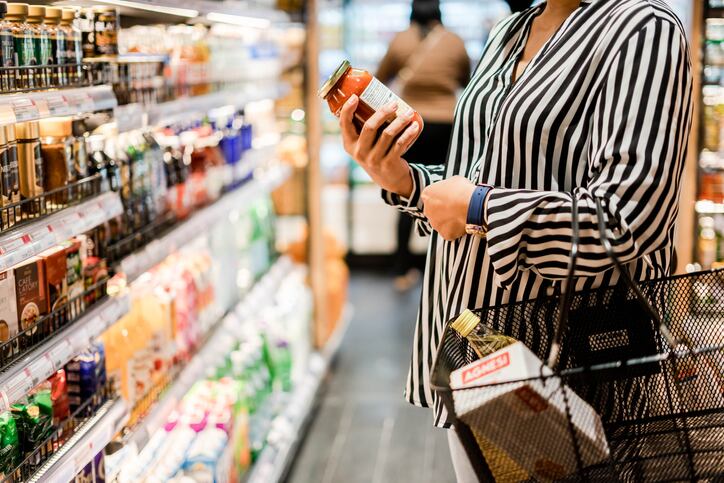They are all classed as ultra-processed foods, according to the NOVA classification, which defines ultra-processed foods as those made by industrial processing and that often contain additives such as colours, flavours, emulsifiers or preservatives.
A new campaign from the British Nutrition Foundation warns that many healthy foods are being unfairly tarnished by the increased attention currently being placed on all things ‘ultra-processed’.
It is hammering home the message to consumers that, while high consumption of many ultra-processed foods - such as fizzy drinks and sugary cereals containing high levels of added sugar, fat, and/or salt, and lacking in vitamins and fibre - can include a higher risk of cardiovascular disease and death, the term can include items that can be a useful part of a healthy, balanced diet.
A BNF survey, carried out by YouGov, suggests that people find it difficult to distinguish between foods classed as ultra-processed and other processed foods.
More than one fifth of the survey respondents (21%) said that a healthy, balanced diet shouldn't include any ultra-processed foods. But the survey revealed a lack of understanding of which foods are included in the ultra-processed definition.
When given a list of foods and asked which they would classify as ultra-processed, just eight percent selected canned baked beans, nine percent low fat fruit yogurt, 12% ice cream, 19% pre-packaged sliced bread from a supermarket, 26% ready-made pasta sauces, and 28% breakfast cereals with added sugar.
Confusion about ultra-processed foods
Sara Stanner, Science Director, British Nutrition Foundation, said: “There's an increasing amount of research on ultra-processed foods and health, and the term is being used more than ever. But most people still have not heard of the term and are not clear about what it includes. Many foods that would be classified as ultra-processed may not be recognised as such and, while many ultra-processed foods are not healthy options, this isn't always the case. As well as less healthy items like crisps, cakes, sweets, chocolate and sugary drinks, which many of us need to cut back on, ultra-processed foods can include sliced wholemeal bread and vegetable-based pasta sauces which can be a useful part of a healthy, balanced diet.”
Almost 70% of those surveyed agreed with the statement that it's better to cook from scratch than use processed foods but 53% agreed that a healthy, balanced diet can include some processed foods and 49% said that processed foods can be convenient and help save time. 26% agreed with the statement that it is not possible to cook all their meals from scratch.
Stanner continued: “There can be a very judgmental attitude towards processed foods, implying that you cannot be eating well if your diet is not made up entirely from 'real food' that is cooked from scratch. But most foods we eat are processed in some way and processed foods help a lot of us to prepare meals within the limited time and budget we have. And just because something is homemade does not necessarily make it a healthy option – recipes vary widely from the very healthy to the very indulgent. What we should really be concerned about is how healthy a food is overall, and the balance of our diet as a whole.”
The many benefits of processed foods
Processed foods have many benefits, stressed the BNF, and the food consumed nowadays is processed to some degree to make it edible, safer, longer-lasting, more convenient and more nutritious, via, for example, food fortification.
Meanwhile, food processing techniques used by industry and at home - such as boiling, fermenting, salting, freezing, canning, baking, pickling and pasteurisation - have been used for thousands of years.
Blame sedentary lifestyles not food products
The BNF adds that processed foods shouldn’t be blamed for problems related to increasingly sedentary lifestyles. Our environment, it said, is encouraging us to eat more than we need, and this can encourage weight gain. This is not down to food processing per se, it argued, but it is important to reduce consumption of foods that are high in fat, sugar and salt, many of which are processed foods.
Stanner added: “Some ultra-processed foods, such as confectionary, fried snacks, cakes and sugary drinks, are already recognised by nutrition professionals as foods to limit, however this does not mean that all processed foods should be demonised. Looking at food labels, in particular at sugar, salt and saturated fat content, can be valuable in helping us to make healthier choices. In addition, we need to encourage food manufacturers to produce foods that are healthier, ensuring that healthier food choices are easier, more convenient and affordable for people to make.”



